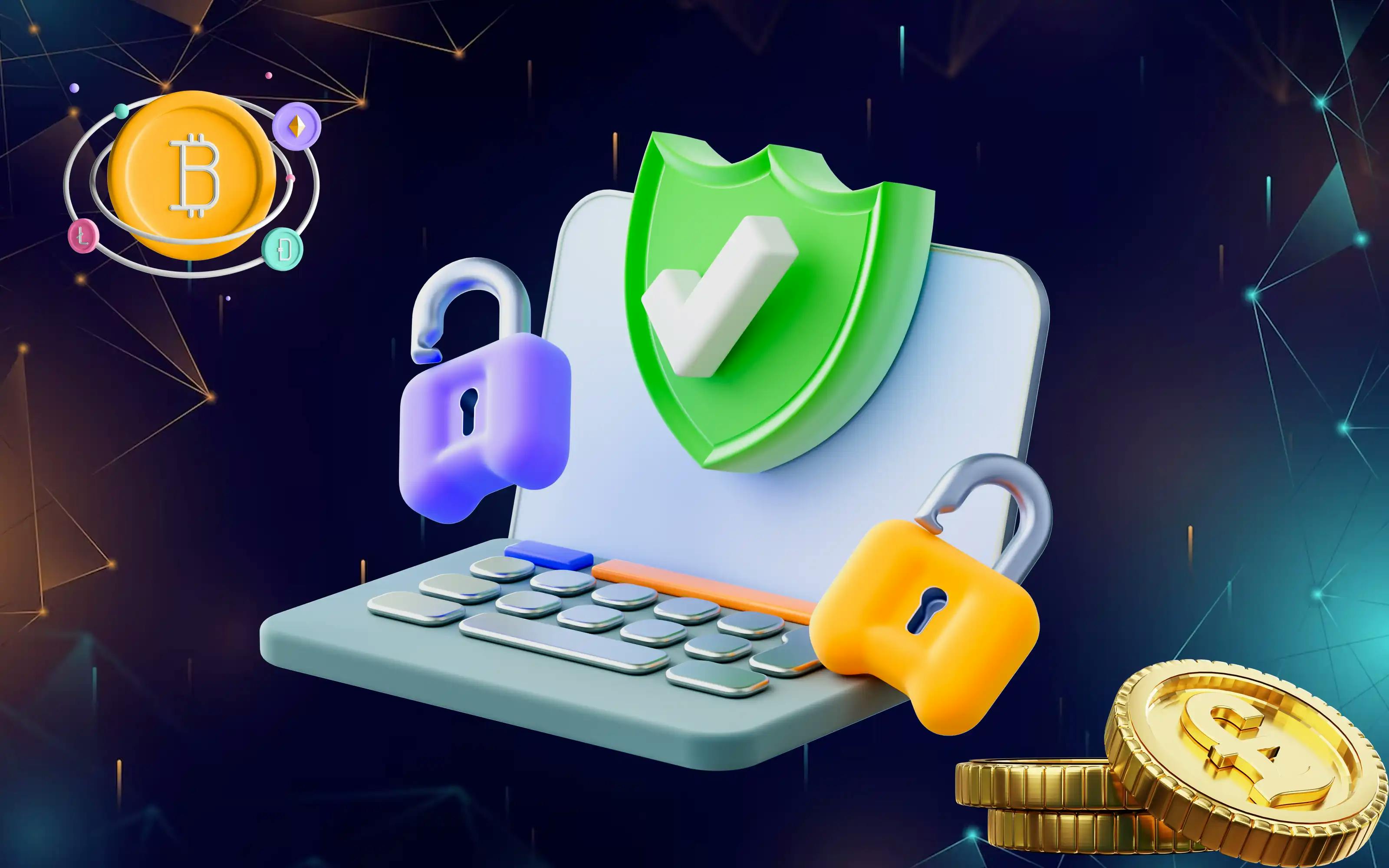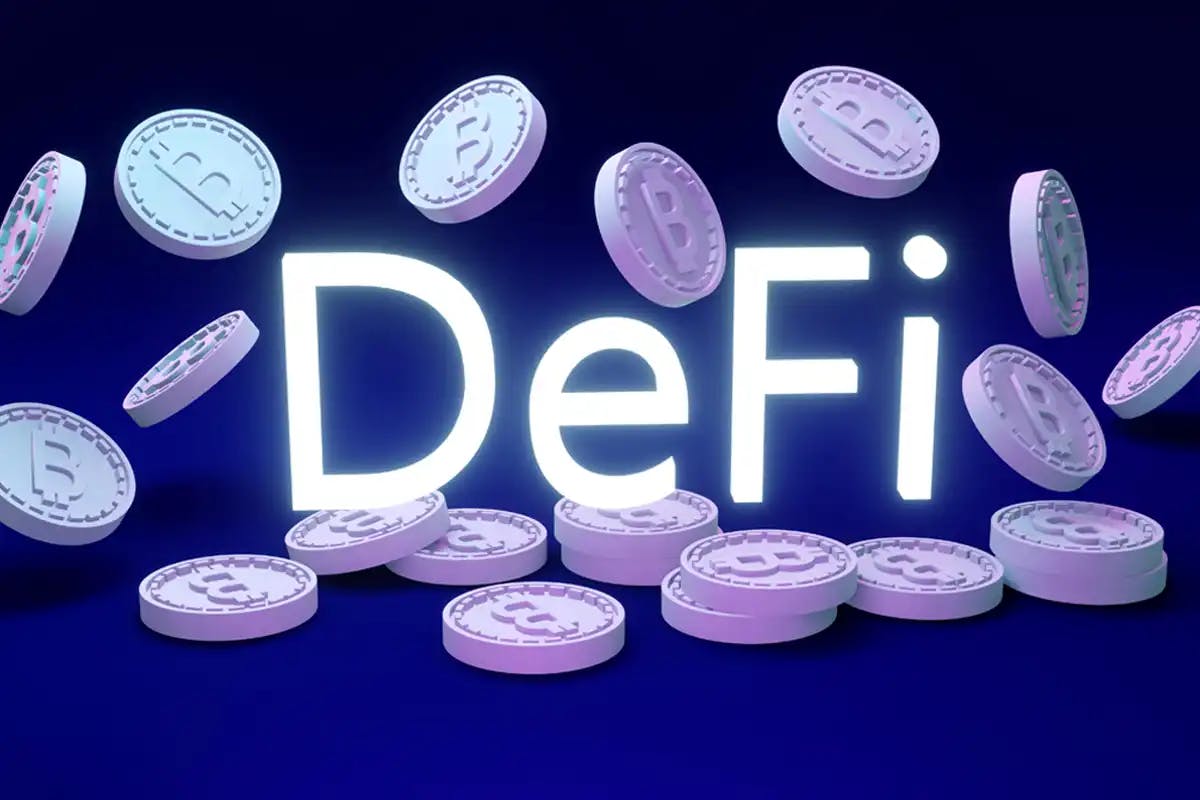
Transforming Global Finance with Decentralised Finance
The financial world is currently experiencing a significant transformation, with decentralised finance (DeFi) at its core. DeFi represents a new approach that deviates from traditional centralised financial systems, incorporating a decentralised and open ecosystem instead. Essentially, DeFi aims to provide financial services through the use of blockchain technology, eliminating intermediaries and promoting accessibility, transparency, and inclusivity.
What is Decentralised Finance (DeFi)?
Decentralised Finance (DeFi) is a term used to describe a variety of financial services, such as lending, borrowing, trading, and asset management. These services are built on blockchain technology and can be accessed by anyone with an internet connection. Decentralized finance aims to promote financial inclusion worldwide.
Key Characteristics of Defi
DeFi, short for Decentralised Finance, is an innovative financial ecosystem that operates on blockchain technology and offers distinct features that set it apart from traditional centralised finance systems. These features define the fundamental principles and benefits of DeFi:
- Decentralisation
DeFi platforms and applications operate on decentralised networks, primarily blockchain, without relying on a central authority or intermediary, such as banks or financial institutions. This decentralised nature of DeFi enhances resilience by reducing counterparty risk and eliminating single points of failure. - Secure Transactions
Decentralised Finance (DeFi) operates on the basis of smart contracts, which are automated agreements with predetermined rules. In DeFi transactions, participants do not have to rely on any central authority. Instead, they put their trust in the code and the blockchain network itself, as these ensure that transactions are executed automatically once specific conditions are met. - Transparency
Transparency is a key characteristic of DeFi transactions and smart contracts. These transactions and contracts are recorded on a public and unchangeable blockchain ledger, allowing users to verify and audit them. Defi ensures fairness and honesty within the system, as anyone can access the blockchain to view transaction history and smart contract code. - Accessibility
DeFi services are available to anyone with an internet connection and a compatible wallet. Unlike traditional finance systems that impose barriers to entry like minimum account balances or geographic restrictions, DeFi promotes financial inclusion by removing such limitations. - Interconnectedness
Defi projects frequently collaborate and seamlessly interact with each other. This connectedness enables users to easily transfer assets and data between various DeFi platforms, resulting in a more integrated ecosystem that offers a wide range of financial services.
The Concept of Traditional Finance
Traditional finance refers to the long-standing and regulated financial systems that have been in place for many years. Within this framework, financial activities are primarily overseen by centralised entities like banks, insurance companies, stock exchanges, and government regulators. These intermediaries play a crucial role in providing various financial services such as lending, borrowing, payments, investment management, and more. The traditional finance system relies on established rules, regulatory frameworks, and legal structures to maintain the trustworthiness and safety of financial transactions.
How Traditional Finance Differs from DeFi Finance?
DeFi, or Decentralised Finance, marks a noteworthy departure from the norms of traditional finance. In contrast to the centralized nature of traditional finance, which involves intermediaries and regulatory oversight, DeFi relies on blockchain technology, smart contracts, and decentralized networks to offer financial services.
Key Distinctions between Traditional Finance and DeFi
- Centralization vs. Decentralisation
Traditional finance relies on centralised entities, while DeFi operates on decentralised networks. In the world of DeFi, transactions occur directly between users on a blockchain, eliminating the need for intermediaries. - Intermediaries vs. Smart Contracts
In traditional finance, the reliance on intermediaries such as banks, brokers, and regulators is significant. However, with DeFi (Decentralised Finance), these intermediaries are replaced by smart contracts. These self-executing codes automate financial processes, resulting in more efficient transactions with reduced fees. - Regulatory Oversight vs. Code-Based Rules
Traditional finance is subject to strict regulation and oversight by government bodies and regulatory authorities. In contrast, DeFi relies on rules encoded in smart contracts, reducing the reliance on traditional regulatory oversight. - Accessibility
DeFi has the potential to offer greater financial inclusion, as it can be accessed by anyone with an internet connection, irrespective of their geographic location or access to traditional banking infrastructure.
The Rise of DeFi
- Limitations of Centralised Systems
In traditional finance, centralization is prevalent, with intermediaries such as banks, financial institutions, and regulators playing a significant role. However, this centralized system brings about inefficiencies, high fees, restricted access for underserved communities, and a lack of transparency. - Blockchain Technology Inception
The emergence of blockchain technology, particularly Ethereum, played a pivotal role in challenging the traditional financial system. Ethereum introduced the concept of smart contracts, enabling the creation of Decentralised Applications (DApps) that power DeFi platforms.
The Explosive Growth of DeFi
In recent years, decentralised finance (DeFi) has witnessed a notable surge in popularity. The total value locked (TVL) in DeFi protocols has soared to billions of dollars, indicating an escalating enthusiasm for and uptake of decentralised financial services.
- Foundation of Blockchain Technology
Blockchain is a technology that allows for secure and transparent recording of transactions. It operates in a decentralised and distributed manner, with a network of computers verifying and maintaining the records. Each set of transactions forms a block, which is then linked to the previous one, creating an unbroken chain.
Blockchain has become increasingly important for several reasons nowadays. - Security and Trust
Blockchain technology ensures security and trust through the use of cryptographic techniques, which make it highly challenging for unauthorised parties to modify or manipulate records. This enables digital interactions to be conducted with confidence, minimising the risk of fraud. - Transparency
Transparency is a crucial aspect of the network, as all participants have access to the same ledger. This ensures accountability and fosters trust among users, particularly when trust is paramount. - Immutability
Immutability is a key characteristic of blockchain technology. Once data is recorded on the blockchain, it becomes permanent and cannot be changed or removed. This feature makes it a reliable and secure solution for keeping records that are resistant to tampering. - Efficiency
One of the key benefits of blockchain technology is its ability to streamline processes through smart contracts. By automating tasks and removing the need for intermediaries, blockchain can significantly improve operational efficiency.
Basics of Blockchain
- Immutable Ledger
Blockchain technology offers an unchangeable and easily visible record of all transactions, which greatly reduces the risk of fraud and tampering. This transparency is a vital feature in decentralized finance (DeFi). - Smart Contracts
Smart contracts are contracts that execute themselves based on predetermined code. Automating processes and eliminating intermediaries can reduce costs and improve efficiency.
What is Ethereum?
Ethereum is a blockchain platform that allows the development of decentralised applications using smart contracts. It plays an essential role in supporting the DeFi ecosystem, which encompasses numerous DeFi projects.
What is the Role of Smart Contracts in DeFi?
Smart contracts are an important component of the decentralised finance (DeFi) ecosystem, as they serve as the foundation for various DeFi applications and services. These contracts are designed to automatically execute predetermined actions when certain conditions are fulfilled, providing several benefits within the DeFi space:
- Automated Transactions
Smart contracts can automate financial transactions, eliminating the need for intermediaries such as banks or brokers. By implementing this automation, processes become streamlined, resulting in reduced time and complexity when executing financial agreements. - Trustless Interactions
In decentralised finance (DeFi), users can engage in transactions without placing trust in a central entity. Instead, they rely on the code and decentralised nature of blockchain to ensure that transactions are executed according to predefined rules. - Transparency
Providing transparency to all individuals, the blockchain records smart contract code in open-source documentation. This allows users to verify the contract’s functionality and fairness by reviewing the code and transaction history. - Lower Fees
Transaction costs linked with traditional financial services are lessened by smart contracts through the elimination of intermediaries and automation of procedures. Lower fees can be enjoyed by DeFi application users.
What are the Components of DeFi Ecosystem?
Decentralised Exchanges (DEX)
- Peer-to-Peer Trading
Decentralised exchanges (DEXs) enable direct trading of digital assets between peers, eliminating the need for a central middleman. Users maintain full control over their funds throughout the entire process. - Liquidity Pools
Liquidity pools are essentially funds that users contribute for trading purposes. These pools facilitate decentralised trading and, in return, provide liquidity providers with a portion of the trading fees generated.
Decentralised Lending and Borrowing
- Overview of Lending Protocols
With decentralised finance (DeFi) lending protocols, individuals have the opportunity to lend their assets and earn interest. At the same time, borrowers can conveniently access funds without having to rely on traditional banks. - Borrowing without Intermediaries
Defi lending platforms remove middlemen, allowing borrowers to access funds faster and providing lenders with improved returns.
Yield Farming and Liquidity Mining
- Incentivizing Participants
To encourage user participation in DeFi platforms, yield farming and liquidity mining programs offer rewards in the form of tokens or interest. These incentives are given to users who provide liquidity or utilise various services offered by DeFi platforms. - Risks and Rewards
Although yield farming can be profitable, it is important to acknowledge the potential risks involved. These risks include impermanent loss and vulnerabilities in smart contracts. Therefore, users should prioritise conducting thorough research before deciding to participate.
The Security Challenges of DeFi
Security Related Challenges
- Smart Contract Vulnerabilities
Smart contracts, while innovative, are not devoid of vulnerabilities. Exploiting these weaknesses can result in substantial financial losses. To mitigate the risks associated with smart contracts, conducting thorough auditing and code reviews is essential. - Risks of Hacks and Exploits
Due to the vulnerability of DeFi platforms, they have become prime targets for hacks and exploits. This emphasises the significant need for robust security measures and comprehensive insurance solutions.
Regulatory Related Challenges
- Evolving Regulations
Regulatory authorities are still navigating the evolving landscape of decentralised finance (DeFi). It is important for the industry’s long-term sustainability that there is clear guidance and adherence to regulatory compliance. - Compliance Challenges
Regulatory compliance presents challenges in the decentralised world of DeFi. Striking a balance between innovation and regulation is of utmost importance.
Interconnecting DeFi Platforms with Blockchain Technology
Cross-Chain Compatibility
- Bridging Different Blockchains
In the world of blockchain technology, bridging different blockchains is crucial to address the current fragmented landscape. With a multitude of blockchain networks employing various consensus mechanisms, governance structures, and technical protocols, there is an increasing need for seamless communication and interoperability among the platforms. This connectivity provides a harmonious ecosystem where the collective benefits of each blockchain can be harnessed, allowing users to navigate between different platforms without encountering cumbersome processes. - Achieving Interoperability
Interoperability is a major challenge in the blockchain space because of the diverse and complex nature of blockchain networks. Each blockchain operates with its own rules, consensus mechanisms, and governance structures that make communication between them more challenging.
Platforms like Polkadot and Cosmos are actively working towards achieving cross-chain compatibility. These projects understand that interoperability is not a simple fix but rather a complex task that involves technological innovations, building consensus, and establishing standards. Their efforts provide valuable perspectives into the challenges involved with achieving smooth communication among diverse blockchains.
Role of Oracles in Blockchain
In the world of blockchain and smart contracts, oracles act as important mediators between the decentralised world of blockchain and the vast external world. Essentially, they function as data feed services or middleware that allow access to real-world information and external data sources. Serving as bridges, oracles enable blockchain-based applications and smart contracts to interact with data and events beyond the confines of the blockchain network itself. Their role is pivotal in bringing essential information into the blockchain environment. What else do oracles deliver?
- Faster and Cheaper Transactions
Decentralised finance (DeFi) technologies, like stablecoins built on blockchain and decentralized exchanges, have transformed the speed and affordability of cross-border transactions. Examples include Terra’s CHAI stablecoin and Ripple’s XRP, which provide a faster and cheaper medium of exchange for international remittances. These platforms bypass the traditional correspondent banking system, resulting in reduced fees and increased efficiency for individuals and businesses sending or receiving funds globally. - Reducing Dependency on Traditional Banks
The decentralised nature of DeFi presents individuals and businesses with the opportunity to engage in international transactions without relying on traditional banks. This independence from banks eliminates bureaucratic obstacles and reduces the time delays typically associated with cross-border payments. Users can directly transact using blockchain-based protocols and DeFi platforms, bypassing intermediary banks. - Access to Banking Services
DeFi has the potential to expand access to banking services for individuals who are currently underserved or excluded by traditional banks. By utilising blockchain-based financial platforms, people in unbanked and underbanked populations can now access services such as savings, lending, and payments. Platforms like Aave or Compound allow users to earn interest on their cryptocurrency assets and borrow funds without needing a traditional bank account. - Empowering the Unbanked
Decentralised Finance (DeFi) projects, including stablecoins and micro-lending platforms, offer valuable benefits to individuals who lack access to conventional banking services. Stablecoins such as DAI or USDC provide a reliable medium of exchange that isn’t affected by the same price fluctuations as cryptocurrencies, making them more easily accessible for those without bank accounts. Additionally, micro-lending platforms like Kiva or Myco facilitate peer-to-peer lending on a global level, creating new opportunities for financial inclusion.
Future Trends and Innovations in DeFi Ecosystem
Several exciting innovations and trends are emerging as the DeFi ecosystem evolves, moulding the future of finance and expanding the DeFi landscape. Two key trends warrant exploration: traditional finance integration and the intersection of Non-Fungible Tokens (NFTs) and DeFi.
Integration with Traditional Finance
- Collaboration Opportunities
A notable trend in the DeFi sector is the increasing collaboration between traditional financial institutions and DeFi. Despite being perceived as disruptors to traditional finance, there is a growing recognition of the capability for collaboration and synergy.
Traditional banks are considering collaborations with DeFi projects to benefit from the efficiency and innovation of blockchain technology. This partnership could imminently result in the creation of hybrid financial services that combine the advantages of both traditional and decentralised finance.
Consumer protection is a primary concern for regulatory authorities that monitor the DeFi space. To ensure compliance, they are developing frameworks that balance innovation and safety. Collaboration between DeFi projects and regulators can create a more harmonious regulatory environment that safeguards users. - Hybrid Financial Systems
In finance’s future, we might see a conglomeration of traditional finance and DeFi, creating a hybrid financial system. DeFi services in hybrid financial systems are designed with regulatory compliance in mind, allowing for adherence to existing financial regulations and minimising risks that come with fully decentralised systems. The prioritisation of regulatory compliance is a distinct feature of hybrid financial systems in comparison to other financial systems.
NFTs and DeFi
- NFTs as Collateral
NFTs have been rising in popularity as one-of-a-kind digital assets that verify ownership of art, collectibles, and digital content within the DeFi ecosystem. A significant trend has emerged, wherein DeFi lending platforms leverage NFTs as collateral.
Individuals can borrow assets by using their NFTs as collateral. This allows NFT collectors to access liquidity without having to part with their valuable digital holdings. It’s no wonder that NFT-backed loans are gaining popularity as a means for collectors to bring the value of their assets.
Evaluating the worth and legitimacy of Non-Fungible Tokens collateral is no easy feat. To mitigate risk, DeFi endeavors have devised fresh techniques and formulas for evaluating said collateral. Innovations in risk assessments may open the door for a broader acceptance of NFTs in the future. - Creating New Financial Instruments
New financial instruments and investment opportunities are being created by the convergence of NFTs and DeFi sporadically.
DeFi protocols are keen on fractionalizing the ownership of Non-Fungible Tokens. Through this means, multiple users will have the opportunity to own a stake in a high-value NFT. In turn, ownership of NFTs will be democratized, which will lead to new investment avenues.
NFT Pools are like decentralized exchange liquidity pools. They allow users to share rewards, and lend or trade fractional ownership of NFTs by contributing them to a collective pool.
What is the Impact of DeFi in the financial industry?
The rise of decentralised finance (DeFi) has brought about a significant shift in the financial industry, marked by increased accessibility, openness, and innovation.
- Democratisation of Finance
DeFi has introduced significant changes that were once unimaginable. Decentralized Finance (DeFi) has made significant strides in providing financial services to individuals who lack access to traditional banking systems. The accessibility of DeFi hinges on having an internet connection, which means that people all over the world now have the opportunity to engage in financial activities that were once inaccessible. - Decentralised finance (DeFi) platforms provide users with 24/7 access to financial services, allowing them to conveniently manage their finances regardless of time zones or geographic locations. This accessibility empowers users to have complete control over their financial decisions.
- Potential for Global Financial Transformation
Decentralised finance (DeFi) has the potential to change the global financial landscape. By fundamentally transforming traditional systems and offering alternative solutions, it presents a new way of approaching finance. - Decentralised Finance (DeFi) holds the power to revolutionise international trade and remittances, providing faster and more affordable cross-border transactions. By reducing dependence on conventional banking systems, DeFi also helps eliminate excessive fees associated with traditional methods.
DeFi drives innovation by creating an ideal environment for developers and entrepreneurs to invent groundbreaking financial products and services.
Conclusion
Within the constantly evolving DeFi ecosystem, Codiste is a Top Blockchain Development Company provider of DeFi solutions devoted to driving forward the DeFi revolution. Codiste plays a significant role in the DeFi space for several significant reasons:
Being a trusted Defi development company, they use innovative technology to develop strong and secure DeFi solutions. Utilizing their deep understanding of smart contracts and custom blockchain development, they ensure the reliability of DeFi platforms.
Security and compliance are top priorities for Codiste. They take extensive measures to ensure the safety of users’ assets, including conducting thorough audits and code reviews to identify and address any potential vulnerabilities in their smart contract development.
With the continuous evolution of the DeFi landscape, Codiste, a top-noted Blockchain development company, stands out as a valuable partner in driving innovation, ensuring top-notch security, and empowering users in the ongoing transformation of finance.





